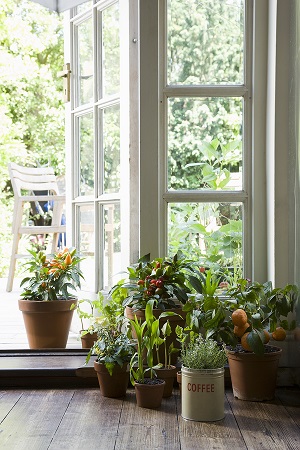Gardening for Stress Relief
 Some plants offer natural stress relief elements that can’t be found in other methods. The simple beauty and joy of tending to these functional plants can greatly relieve stress you might feel from a long day in a stuffy office or fighting traffic within a fog of fumes.
Some plants offer natural stress relief elements that can’t be found in other methods. The simple beauty and joy of tending to these functional plants can greatly relieve stress you might feel from a long day in a stuffy office or fighting traffic within a fog of fumes.
Spending time with nature is known to help relieve stress. One study showed that hospital patients who enjoyed well-placed plants within their rooms tended to have much lower stress levels than those patients without the plants.
Planting greenery indoors can cheer up the ambiance of a room and also purify the air you breathe. They bring relaxation and a restful scene into any room in your home or office. Indoor plants also increase the oxygen levels in a room and rid it of toxins so you’re breathing cleaner air.
Some great plants for containers and your indoor space include the aloe plant. Not only does the gel within the aloe leaves contain healing properties – they keep the air free of pollutants found in most cleaning products. Place the aloe plant in a sunny spot and watch it grow.
Scientists at NASA have deemed the English Ivy plant as one of the best indoor plants to use for filtering the air. It’s great for absorbing formaldehyde and a beautiful plant to hang or use as a floor plant – and it doesn’t need a lot of sunlight to flourish. Continue reading
As a society, we’ve become more and more dependent on prescription anti-depressants to keep us on an even keel and to fight the onset of depression that comes from living a stressful life.
Depression is now a global epidemic which is being alleviated with anti-depressants containing chemicals that we’re becoming more and more dependent upon. There is another method that can work even better, but you must make a long-term commitment to it to make it work — gardening.
There are natural chemicals emitted in your brain when you’re exercising or doing something you enjoy. One of the best ways is to get your hands dirty, enjoy the outside and grow your own food. Continue reading
